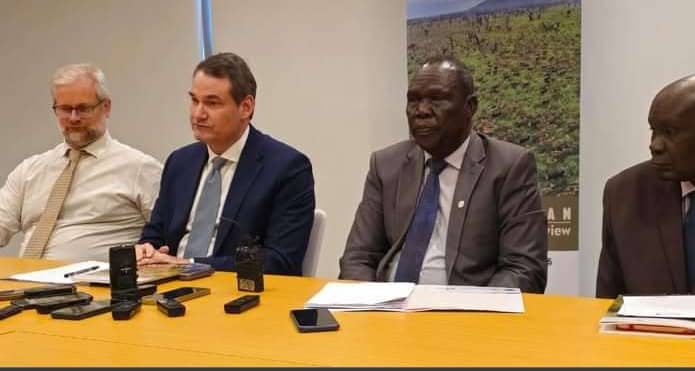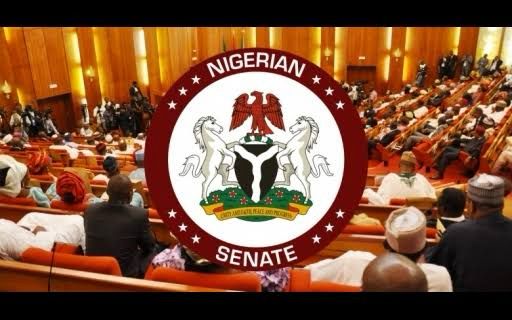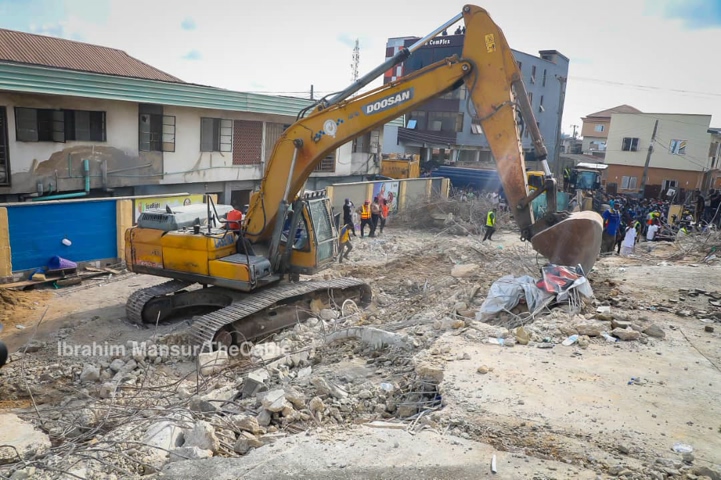SUDAN: World Bank Funds South Sudan To Diversify Economy For Inclusive Development

By Debora Akur Chol, South Sudan
The World Bank Group on Monday, urged South Sudan to diversify its economy in order to foster inclusive development.
The call came in a report on the South Sudan Natural Resource Review (NRR), which highlighted the country’s rich natural assets and their potential to support long-term economic growth.
South Sudan’s vast ecosystems, ranging from fisheries to forests and wildlife, provide significant opportunities for development.
According to the report, approximately 75 percent of South Sudanese people directly rely on these ecosystems for food, clean water, and energy, all of which could play a larger role in the country’s economic growth.
Fishing is a particularly vital part of South Sudan’s economy, with millions of people depending on it for their livelihoods.
Around 2.1 million people live in households where at least one member is involved in fishing, with roughly 250,000 active, full-time fishers concentrated in Upper Nile, Jonglei, and Unity State.
Stephen Ling, Lead Environment Specialist at the World Bank South Sudan, pointed out that the country’s annual fish catch of about 300,000 tons is far below its sustainable production potential.
He estimated that this sector could be worth approximately $300 million at local market prices.
However, about 70 percent of the catch is lost due to poor handling, post-harvest waste, and a lack of infrastructure to reach regional markets, particularly in the Democratic Republic of Congo, where prices are significantly higher.
South Sudan’s vast Sudd wetlands and surrounding White Nile floodplain support one of the world’s most productive freshwater fisheries, and to the southeast, the Boma-Bandingilo-Jonglei region hosts the world’s largest antelope migration.
However, the country has seen a dramatic decline in large wildlife populations, down by 90 percent, due to the proliferation of automatic weapons and the poaching of ivory and rhino horn.
In addition to fisheries, the World Bank’s report emphasized the value of South Sudan’s forestry sector, which covers around 30 percent of the national land area.
This sector has high ecosystem integrity and retains commercially valuable species that have largely been lost in neighboring countries.
The report also noted that South Sudan’s wildlife, though still abundant, is under threat.
Many of the most important wildlife habitats, such as the Sudd wetland and the Boma-Bandingilo-Jonglei landscape, are only partially protected, and wildlife management efforts remain limited across the country.
“South Sudan’s remarkable natural assets have the potential to deliver major benefits for its people,” said Charles Undeland, World Bank Group Country Manager for South Sudan.
“Managing these resources wisely is crucial to maximize their benefits and ensure long-term sustainability.
Community-based natural resource management and the development of sustainable value chains could reduce the country’s dependence on oil, directly benefiting rural communities, and fostering inclusive development.”
The World Bank also suggested that restoring the teak plantation industry could generate nearly $1 million per year and create 150 jobs per 1,000 hectares. Furthermore, community forest management could generate over $1 billion annually from sustainable non-timber forest products, as a third of South Sudan’s land could be suitable for such initiatives.
The World Bank’s recommendations underscore the importance of developing South Sudan’s natural resource sectors to create a more diversified and sustainable economy that benefits all its citizens.
categories
recent posts

Pope Francis Dies At 88, Vatican Mourns

NIGERIA: Senate Resumption Delayed To May 6 Over Workers’ Day, Constituency Engagements

NIGERIA: SEC Warns Influencers, Bloggers Against Promoting Unregistered Investment Schemes

NIGERIA: Death Toll from Lagos Building Collapse Rises To Five, 13 Rescued

